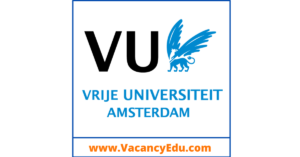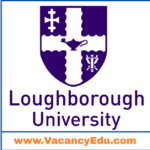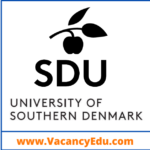Vrije University Amsterdam, Netherlands invites online Application for number of Fully Funded PhD Degree at various Departments. We are providing a list of Fully Funded PhD Programs available at Vrije University Amsterdam, Netherlands.
Eligible candidate may Apply as soon as possible.
(01) PhD Degree – Fully Funded
PhD position summary/title: PhD position in Biomedical Optics
For this project, we are looking for three PhD students who will work on optical system development, novel catheter designs, data processing algorithms, and modeling of scattering and polarization properties of tissue, with the goal of bringing these technologies to patient care. The research will be conducted at the VU University in Amsterdam. The candidate will be part of the PhD program of the Biophotonics & Medical Imaging section under the Physics and Astronomy Department at the Vrije Universiteit Amsterdam, under the supervision of Prof. Dr. J.F. de Boer, an internationally recognised leader in the field of Biophotonics (www.deboer.one).
Deadline :30-11-2024
(02) PhD Degree – Fully Funded
PhD position summary/title: Two PhD positions in landscape response to retreating glaciers
Mountain ranges are the primary source of global sediment and hotspots of geohazards. In their high-altitude, alpine regions, climate change is accelerating erosion and landslide activity due to rapid post-glacial landscape adjustment and permafrost degradation. While most current observations of these processes span just a few years or decades, there is an urgent need to understand how these dynamics unfold over much longer timescales (102-104 years) to quantify the impact of present, past and future glacial-interglacial climate changes. This NWO-funded project (Dutch Research Council) aims to tackle this research gap by examining the interactions among erosion, topography, and sediment fluxes over millennial timescales in the Western Southern Alps of New Zealand, and how they are influenced by tectonics. Gaining such insights is crucial for predicting the magnitude and location of future climate-induced geohazards in alpine regions.
Deadline : 15-11-2024
View All Fully Funded PhD Positions Click Here
(03) PhD Degree – Fully Funded
PhD position summary/title: PhD position ‘Survivor. The selection process of political elites in Europe’
Who becomes politically active and succeeds in a political career? The selection process for politicians can be visualized as a ladder, beginning with the initial ambition of citizens to run for office and culminating in the “survival” of national MPs at the top. This Vidi grant-funded project by the Dutch Research Council NWO, based at the Ethics, Governance and Society (EGS) department of the Vrije Universiteit Amsterdam, explores how personality traits influence this selection process. At each step of the ladder, we find people who do or do not have the ambition to climb. Among those who aspire to climb, we find people that do and do not make it. How do these people differ from each other in terms of personality traits? And crucially, which personality traits do European citizens deem desirable traits for politicians?
This interdisciplinary project applies personality psychology models to provide unparalleled insights into the traits of (aspiring) politicians. Here we are particularly interested in so-called virtue related traits like honesty-humility and the traits from the Dark Triad (e.g., narcissism) and Light Triad (e.g., faith in humanity). The project examines the impact of these and other personality traits at several essential stages of the selection process: from the nascent ambition of citizens (the bottom of the ladder), to the progressive ambition of local politicians, to the promotion and retention of national MPs (the top of the ladder). At each step, we identify how personality traits shape political ambition and the fulfilment of this ambition. We also consider the role of (party) voters and selectorates within this selection process. The project team comprises a PhD candidate, a postdoc and the principal investigator (PI), Dr. Marc van de Wardt.
As a PhD candidate, you will write a dissertation, consisting of several research articles, on the personality traits that citizens across Europe deem desirable in politicians and the relationship between personality traits and political ambition (fulfillment) at the different steps of the selection process. While contributing to all aspects of the Vidi project, your key responsibility will be the panel study on local politicians tapping into personality traits, political ambition and ambition fulfilment. Designing and running this panel study will offer you the opportunity to put your unique stamp on this project. Additionally, you will contribute to a project led by the postdoc and PI, involving the collection of survey data on self-reported personality traits of politicians and coding their personality traits at a distance with a team of student coders. We will use this data to train an algorithm that can extract personality traits from inaugural speeches by politicians. Since this is a cross-national project, you will frequently be cooperating with researchers from other institutions.
Deadline :1-11-2024
(04) PhD Degree – Fully Funded
PhD position summary/title: PhD: Interorganizational learning and knowledge exchange in Smart Industry
The Dutch industry needs a skilled workforce to keep up with and contribute to digital and green transitions. However, finding qualified employees is challenging, and skills quickly become outdated due to fast-developing technologies (AI, VR, robots). Currently, most Smart Industry companies lack human capital and knowledge to achieve their maximum potential. Keeping up with smart breakthrough technologies involves many complex interorganisational activities, cooperation, and knowledge sharing that go beyond the capabilities of single organisations. Therefore, many Smart Industry organisations perform these complex organisational challenges in networks of
organisations: Smart Industry communities. This project seeks to understand how knowledge exchange within the communities can be optimized.
The NWO-funded project Smart Skills@Scale connects 5 universities, 3 universities of applied sciences, eleven Smart Industry communities, 450 SMEs, and several sector organisations and educational partners in an eight-year program to realize a major breakthrough aimed towards creating a sustainably employable workforce. In a total of four work packages, we stimulate the development of human-centric production systems, smart workplaces, jobs and careers, and (regional) partnerships. With this integrated approach, we want to empower production employees and organizations to achieve a human-centric, resilient, and sustainable Smart Industry sector. We invite enthusiastic researchers to join our team and to work on the creation of resourceful workplaces in the Smart Industry in which production workers are stimulated to continuously update and renew their skills to keep up and contribute to quickly changing technology. This PhD position is embedded in the fourth work package.
Deadline : 31-10-2024
(05) PhD Degree – Fully Funded
PhD position summary/title: PhD Student in Metabolomics
More than a quarter of global greenhouse gas emissions come from the food production chain. Replacing animal proteins in our diets with plant-based alternatives drastically reduces these emissions. Plant-based diets are also healthier. However, current plant-based alternatives to dairy and meat do not have the desired taste, texture or nutritional value yet. Fermentation is a promising technology to improve this issue, but currently it is often still based on trial and error. The FERMI project will improve the predictability of fermentation processes to find the optimal production method for tasty, healthy and sustainable plant-based foods.
This phD position is centered on developing metabolomics workflows to studying the metabolic changes observed through fermentation of plant substrates. We are therefore looking for a motivated phD student to conduct research on metabolism by developing and implementing LC-MS and NMR-based metabolomics.
Deadline : 31-10-2024
Polite Follow-Up Email to Professor : When and How You should Write
Click here to know “How to write a Postdoc Job Application or Email”
(06) PhD Degree – Fully Funded
PhD position summary/title: PhD-student in molecular neuroscience
Synaptic plasticity, the ability to modify synaptic strength in response to neuronal activity, plays a central role in the capacity of the brain to encode memories. It is thus important to understand the molecular events that induce long-term alterations in synaptic structure and function. Recent super-resolution microscopy studies from our lab and others showed that activity-dependent remodeling of synaptic nanostructure is important for synaptic plasticity. However, while these findings revealed an exciting new level of nano-structural plasticity that is relevant for memory formation, the molecular processes that coordinate these processes remain unresolved. In this project, you will investigate how nanoscale molecular processes at synapses control memory formation. You will use CRISPR/Cas9-based tools, super-resolution microscopy, optogenetics and electrophysiology to study synapse nanostructure and function in different model systems (dissociated hippocampal neuron cultures, organotypic hippocampal slice cultures and hippocampal tissue sections).
You will be part of international research networks and exploit a variety of techniques and analysis tools available. All the core methodology, cell models, equipment, analysis software and viral vectors are available from the start of the project. You will be trained on site and in specialized courses on campus.
Deadline : 8-11-2024
(07) PhD Degree – Fully Funded
PhD position summary/title: PhD Responsible Research and Innovation in In Silico Technologies
InSilicoHealth is an innovative Doctoral Network (DN) with the ambition to train a new generation of outstanding Doctoral Candidates (DC) that will become effective translators of the rapidly evolving digital technology to tackle existing and future challenges related with healthy ageing in Europe. The research focus of this DN lies in three key domains: the brain, heart, and musculoskeletal (MSK) systems. In the realm of digital technology, InSilicoHealth specifically focuses on virtual human twin (VHT) technology to enhance our understanding of the age-related adaptive changes of the complex human body through predictive multi-scale simulations. The research methodology employs knowledge-driven models enhanced by advanced data-driven inference techniques to optimize the health potential of older individuals.
Deadline : 25-10-2024
(08) PhD Degree – Fully Funded
PhD position summary/title: PhD student Microbial Metabolism; Fermentation of plant-based protein
More than a quarter of global greenhouse gas emissions come from the food production chain. Replacing animal proteins in our diets with plant-based alternatives should drastically reduce these emissions. Plant-based diets are also healthier. However, current plant-based alternatives to dairy and meat do not have the desired taste, texture or nutritional value yet. Fermentation is a promising technology to improve this issue, but currently the improving of products by fermentation is still based primarily on trial and error due to a lack understanding of the underlying biochemistry. The FERMI project will improve the predictability of fermentation processes to find the optimal production method for tasty, healthy and sustainable plant-based foods.
This PhD position is centered on optimizing and predicting fermentation outcomes. This includes identification and characterization of relevant microorganisms, generating omics data and apply advance data analysis. We will identify relevant enzymes and pathways for plant-based fermentations and predict microbial behaviour of single and mixed cultures. We will also use experimental evolution and design microbial communities with optimized and predefined functionalities.
Deadline : 31-10-2024
Click here to know “How to Write an Effective Cover Letter”
(09) PhD Degree – Fully Funded
PhD position summary/title: PhD position in reading research (Cognitive Neuroscience)
How do readers recognize words from strings of letters? For most adults, this process may seem effortless and automatic. Yet, for the cognitive psychologist, human’s ability to read remains somewhat mysterious. In this project, carried out by the Snell Language Lab (www.snelllab.eu) and funded by an ERC grant from the European Commission (runtime 2025-2030), we’re developing and testing a new theory of the reading brain in various exciting ways. In particular, we’ll look at how attention is distributed across the visual field during text reading, and at how word recognition is influenced by sentence-level representations that are (believed to be) maintained in working memory. In doing so, we hope to account for several interesting phenomena, such as how readers fail to notice the mistake in the phrase “Do love you me?”. Lastly, we will investigate to what extent visuo-spatial attention operates differently in readers with dyslexia. The research project will rely on the use of behavioral measures (eye movements, response times, accuracy) and neurophysiological techniques (EEG).
Deadline : 15-11-2024
(10) PhD Degree – Fully Funded
PhD position summary/title: 2 PhD Positions in Human-Robot-Bonding
These vacancies for two PhD-candidate positions are part of a EU-funded ‘ERC Advanced Grant’, titled “Understanding Human-Robot Bonding to Optimize Personal Support” [ROBOT-B![]() OND], awarded to prof. dr. Elly A. Konijn (PI) with a total duration of 5 years. See: https://vu.nl/en/news/2024/erc-advanced-grant-for-professor-of-media-psychology-elly-konijn
OND], awarded to prof. dr. Elly A. Konijn (PI) with a total duration of 5 years. See: https://vu.nl/en/news/2024/erc-advanced-grant-for-professor-of-media-psychology-elly-konijn
The overarching aim of the ERC-project ROBOT-BOND is to develop and empirically validate a new theory on Human-Robot-Bonding for longer term interactions focusing on various target groups. The different target groups include children, adolescents, students, and adults. Social robots are being developed to assist professionals in areas in healthcare and education, where they face serious shortages in human personnel. Our project focuses specifically on developing scenarios to provide support for those who need a little extra in the social and communicative realm. Establishing some form of a bond between the human user and a robot is seen as essential to effectively use a social robot over longer time. The research team will compare different types of robots in varying contexts, with different tasks and different target groups. Within this research program, we integrate research from the perspectives of Communication Science and Media Psychology, with Developmental and Clinical Psychology, Computer Sciences/AI, Human-Robot-Interaction, and Natural Language Processing in focus groups, experiments, and field studies. The two PhD-candidates will closely collaborate with three Postdoctoral researchers that are currently hired in the same project, among others.
Deadline : 14-11-2024
Connect with Us for Latest Job updates
(11) PhD Degree – Fully Funded
PhD position summary/title: PhD Position: Simulation & Virtual Field Experiments for Democratic Citizenship
Your research will be part of “WHAT-IF”, a European research project aimed at creating a ‘digital twin’ of the (social) media environment, in order to test possible interventions at the individual and/or societal level. The empirical core of the project is formed by a combination of individual level data donation of (social) media usage, which will be used to train and validate a LLM-based simulation. Then, this will be used to examine the role of misinformation and hate speech, among others, as well as develop solutions to counter the negative effects of these phenomena. The project also explicitly considers the legal and ethical considerations of datafying and simulating individual media usage.
Your main role in the project will be assisting in the development of the methodology and software for running virtual field experiments using the WHAT-IF simulation. This involves turning the simulated interactions into an immersive and user-friendly interface that can be used to program and run the experiments. You will lead one of the experimental studies and collaborate on the others, answering questions on the role of media diets and its effects on democratic outcomes. Additionally, you can be involved in improving the data donation infrastructure, help with the development and validation of the simulation, and/or help with the panels in 4 countries to engage a strong citizen perspective in the entire research process. Together with your supervisors, you will plan this research, execute it, and publish it in leading international journals.
Deadline : 27-10-2024
Polite Follow-Up Email to Professor : When and How You should Write
About The Vrije University Amsterdam, Netherlands –Official Website
The Vrije Universiteit Amsterdam is a public research university in Amsterdam, Netherlands, founded in 1880, and consistently ranks among the top 150 universities in the world by major ranking tables. The VU is one of two large, publicly funded research universities in the city, the other being the University of Amsterdam (UvA). The literal translation of the Dutch name Vrije Universiteit is “Free University”. “Free” refers to independence of the university from both the State and the Dutch Reformed Church. Both within and outside the university, the institution is commonly referred to as “the VU”. Although founded as a private institution, the VU has received government funding on a parity basis with public universities since 1970. The university is located on a compact urban campus in the southern Buitenveldert neighbourhood of Amsterdam and adjacent to the modern Zuidas business district.
In 2014, the VU had 23,656 registered students, most of whom were full-time students. That year, the university had 2,263 faculty members and researchers, and 1,410 administrative, clerical and technical employees, based on FTE units. The university’s annual endowment for 2014 was circa €480 million. About three quarters of this endowment is government funding; the remainder is made up of tuition fees, research grants, and private funding.
The official university seal is entitled The Virgin in the Garden. Personally chosen by Abraham Kuyper, the Reformed-Protestant leader and founder of the university, it depicts a virgin living in freedom in a garden while pointing towards God, referring to the Protestant Reformation in the Netherlands in the 16th and 17th century. In 1990, the university adopted the mythical griffin as its common emblem.
Disclaimer: We try to ensure that the information we post on VacancyEdu.com is accurate. However, despite our best efforts, some of the content may contain errors. You can trust us, but please conduct your own checks too.
Related Posts
- PhD Degree (34)-Fully Funded at Loughborough University, Leicestershire, England

- PhD Degree (15)-Fully Funded at University of Southern Denmark, Denmark

- PhD Degree (24)-Fully Funded at Forschungszentrum Julich, Germany

- PhD Degree (08)-Fully Funded at Vrije University Amsterdam, Netherlands

- PhD Degree (27)-Fully Funded at Nottingham Trent University (NTU), England

- PhD Degree (24)-Fully Funded at University of Oslo, Norway

- PhD Degree (04)-Fully Funded at Masaryk University, Czech Republic

- PhD Degree (29)-Fully Funded at University of Oslo, Norway

- PhD Degree (13)-Fully Funded at University of Stavanger, Norway










